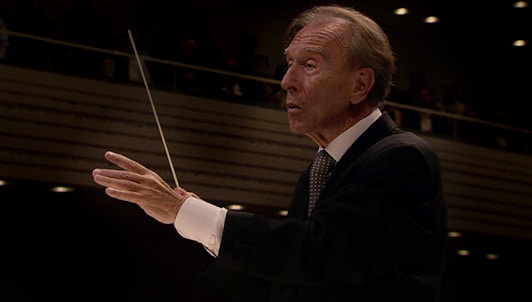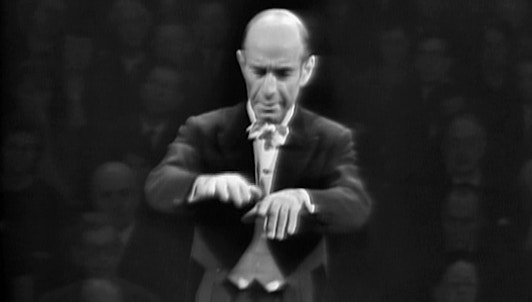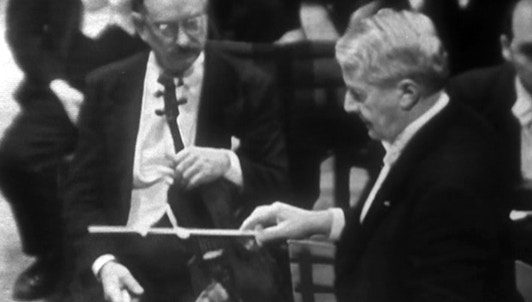A symphony is a work for orchestra, typically in four movements. While the genre has antecedents in the Baroque era, the symphony as we know it today was established in the early Classical period and has remained a mainstay of the repertoire ever since. Read on to learn about how it has changed over the course of time in the hands of composers like Mozart, Beethoven, Shostakovich...
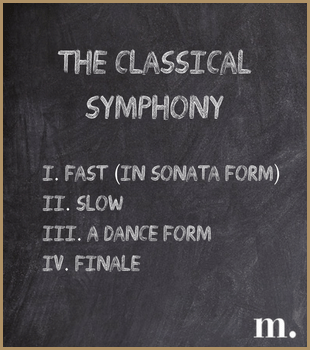
For much of music history, the symphony has followed a specific structure comprised of 4 movements. Each movement had rules governing tempo, meter, the organization of the different melodies, tonality, and more, with the goal of creating a unified musical entity.
In spite of these seemingly strict rules, composers managed to infuse the form with personality and even surprises...
By the second half of the nineteenth century, composers had begun to break away from the strict form established during the Classical era. Small-scale innovations of organization and orchestration gave way to a looser framework in which emotional expression took precedence over a formal structure. The genre developed quickly during this period at the hands of Beethoven, Brahms, Tchaikovsky, Dvořák, Mahler, and more...
Explore the Romantic symphony through our trio of playlists:
Few works have marked music history and pop culture like Beethoven's Symphony No. 9. Though far from his only masterpiece in the genre, Beethoven's final symphony is epic and innovative on an unprecedented scale: in addition to including a full chorus alongside the orchestra, the final movement has been described as a sort of "symphony within a symphony," with the structure of the full piece compressed into a single movement.

Excerpt from Charles Schulz' comic strip Peanuts, 1967.
Even the work's premiere has legendary status. Conducting despite having lost most of his hearing, Beethoven didn't notice the audience's wild applause until someone gestured towards the public behind him.
Explore "The Ninth" and its impact in this documentary featuring the Berliner Philharmoniker and Beethoven expert Wolf Kunold!
Beethoven wasn't the only composer to experiment with epic proportions. Nearly a century after The Ninth, Mahler's Symphony No. 8 called for so many performers it was dubbed the "Symphony of a Thousand"...

Photo: The US premiere of Mahler's 8th, 1916.
Beethoven, Schubert, Dvořák, Mahler... all composers who passed away part-way through composing their tenth symphony, cementing classical music's most entrenched superstition.
– Arnold Schoenberg (composer of two chamber symphonies)
Arguably the most prolific composer of symphonies post-1900, Shostakovich's fifteen symphonies trace not only his development as a composer but also the experience of an artist working within the confines of Stalin's USSR. The cycle runs the full gamut of styles and themes, from the pristine, chamber-like orchestration of his first symphony (his graduation piece at the Petrograd Conservatory) to his politically-charged, genre-bending thirteenth, which sets poetry condemning a mass slaughter in the Ukraine long-denied by Soviet authorities.

Orchestre de Paris
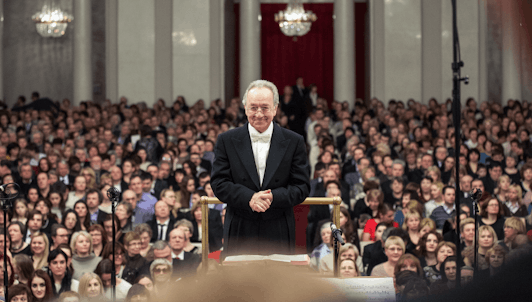
St. Petersburg Philharmonic Orchestra

The Orchestre de Paris – Menahem Pressler's Bir...

